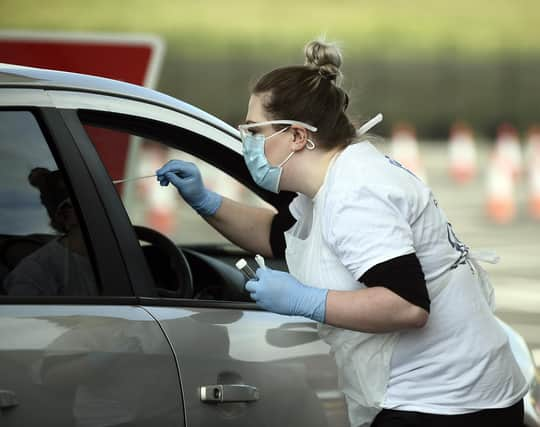Has UK’s handling of Covid crisis produced a ‘bad outcome’? – leader comment


On 17 March, the UK Government’s chief scientific officer Patrick Vallance told MPs it would be a “good outcome” if the UK was able to keep the number of deaths from Covid-19 below 20,000.
It has now been confirmed that 40,261 people have died in Britain’s hospitals, care homes and in the community after testing positive for the virus. The real number may actually be in excess of 50,000, as some who died from the disease were not tested. Up to 22 May, doctors included Covid-19 on the death certificates of 48,106 people.
Advertisement
Hide AdAdvertisement
Hide AdHowever the statistics are assessed, it seems clear that the hoped-for “good outcome” has not been achieved. Only the United States, with more than 108,000 deaths, has a higher death toll – and its population is nearly five times the size of Britain’s.
In fact, the UK death rate of 60 per 100,000 people is the highest in the world, according to a global analysis by Johns Hopkins University in the US, followed by Italy (56) and Sweden (45). Sweden did not impose a strict lockdown like most other countries and initially seemed to be doing relatively well.
But, after the death toll rose, the architect of the Swedish approach, epidemiologist Anders Tegnell recently admitted there was “potential for improvement in what we have done in Sweden, quite clearly”. Asked on Swedish radio whether too many had died, he replied: “Yes, absolutely.”
It has now emerged that one conclusion of a report on a tabletop exercise held in Stirling in 2018 to simulate an outbreak of a different kind of coronavirus was: “Amongst frontline staff there is unease at the lack of clarity on PPE availability, training and testing. This is a clear gap in Scotland’s preparedness for Mers-CoV [a type of coronavirus] and other outbreaks and needs to be addressed as soon as possible.” That unease seems to have accurately predicted the main complaints made by health workers and others on the frontline of the fight against Covid-19.
Whether or not politicians in Scotland and the UK failed to make adequate preparations is a matter for a future public inquiry. What they need to do now is ensure they are fully prepared in the event of a second wave. And what we the public need to do is make sure we stick by the guidelines and hope that, by doing so, we make up for any official failings and avoid a resurgence of this terrible disease.
A message from the Editor:
Thank you for reading this article on our website. While I have your attention, I also have an important request to make of you.
With the coronavirus lockdown having a major impact on many of our advertisers - and consequently the revenue we receive - we are more reliant than ever on you taking out a digital subscription.
Subscribe to scotsman.com and enjoy unlimited access to Scottish news and information online and on our app. With a digital subscription, you can read more than 5 articles, see fewer ads, enjoy faster load times, and get access to exclusive newsletters and content. Visit www.scotsman.com/subscriptions now to sign up.
Advertisement
Hide AdAdvertisement
Hide AdOur journalism costs money and we rely on advertising, print and digital revenues to help to support them. By supporting us, we are able to support you in providing trusted, fact-checked content for this website.
Joy Yates
Editorial Director
Comments
Want to join the conversation? Please or to comment on this article.